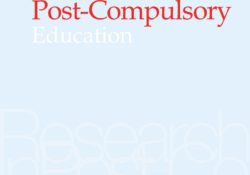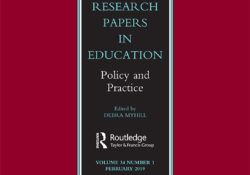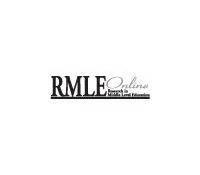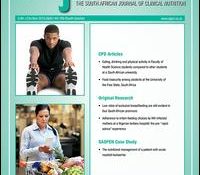tandfonline.com har udgivet en rapport under søgningen “Teacher Education Mathematics”: ABSTRACT ABSTRACT The UK will need a skilled IT work force to maintain its position as a world leader in computing research and development. This study investigated the experience of learning communities amongst first year undergraduate computing students at a UK university. The concept of a learning community was used to examine its influence on student academic and social integration, the issues students need to overcome and the knowledge they need to acquire to become successful. A qualitative approach was employed using the ‘unfolding matrix’, which was completed during group interviews. The data analysis results revealed that learning communities critically affect students’ academic and social integration. Specifically, the importance of student support and guidance from academic staff was considered, as… Continue Reading →
Like this:
Like Loading...
eric.ed.gov har udgivet: In this study, different factors affecting students’ differential equations (DEs) solving abilities were explored at pre university level. To explore main factors affecting students’ differential equations problem solving ability, articles for a 19-year period, from 1996 to 2015, were critically reviewed and analyzed. It was revealed that combination of four factors; “epistemological math problem solving beliefs, belief about usefulness of mathematics, self-regulated learning (SRL) strategies and goal orientations” have great potential to enhance differential equation problem ability. Based on these findings, a conceptual model was developed and presented in this paper to enhance differential equation problem solving ability. This study has provided several important implications for the curriculum designers and teachers to enhance conceptual understanding in differential equation problem solving, particularly in the developing countries.. Link til… Continue Reading →
Like this:
Like Loading...

tandfonline.com har udgivet en rapport under søgningen “Teacher Education Mathematics”: ABSTRACT ABSTRACT Background: Previous studies have investigated effects of out-of-school STEM activities aimed at stimulating children’s interest in science with positive results. However, research has not discussed the reasons why such activities are successful. Purpose: In this study, we address this gap by investigating which factors children themselves identified as interesting when they visited events at an out-of-school activity named The Children’s University. Sample: Children aged 8–12 participated in the study. Altogether, there were 353 children involved in the data collection. Design and methods: A mixed method design was used, including a questionnaire and semi-structured interviews in which children’s self-reported experiences were collected. Likert scale questions in the questionnaire were analysed based on descriptive statistics. The open-ended questions and data… Continue Reading →
Like this:
Like Loading...
tandfonline.com har udgivet en rapport under søgningen “Teacher Education Mathematics”: Abstract Abstract This study examined student readiness to learn and teacher effectiveness in order to determine their impact on middle grades mathematics achievement. Survey data were collected from 964 middle grades students and 93 mathematics teachers in Texas. This study is the first to use this particular collective efficacy short form with middle grade students, and factor analyses were conducted accordingly. Hierarchical linear modeling was used to measure the relationship between teacher perceptions of student readiness to learn and student perceptions of teacher effectiveness on mathematics achievement in the middle grades. The results of these analyses indicated that students’ perceptions of teacher effectiveness and teachers’ perceptions of student readiness to learn each made a significant contribution to the variance in… Continue Reading →
Like this:
Like Loading...
tandfonline.com har udgivet en rapport under søgningen “Teacher Education Mathematics”: Abstract Formulae display:?Mathematical formulae have been encoded as MathML and are displayed in this HTML version using MathJax in order to improve their display. Uncheck the box to turn MathJax off. This feature requires Javascript. Click on a formula to zoom. Background: The Asenze study has the long-term goal of promoting better physical, cognitive and psychosocial functioning of children in a rural area in KwaZulu-Natal, 50 km from Durban, with a view to planning interventions to promote growth and development for very young children. The specific objective in this paper was to provide information for the Child Health and Development project of the Valley Trust to assist with intervention planning. The broader goal was to assess developmental delays in communities ravaged… Continue Reading →
Like this:
Like Loading...

tandfonline.com har udgivet en rapport under søgningen “Teacher Education Mathematics”: Abstract Abstract Academic self-efficacy is a crucial predictor of first-year university study success, which makes it a key intended outcome of pre-university education. Students with high academic self-efficacy at the end of secondary education likely experience a better transition to university. This study aimed to investigate which factors relate to Dutch secondary school students’ self-efficacy in terms of being a successful university student, including a personality variable (i.e. need for cognition), a motivational variable (academic interest), and behavioural variables (student engagement and out-of-school academic activities). Structural equation models served to test the proposed model. The results revealed that need for cognition, academic interest, and out-of-school academic activities related directly to self-efficacy; need for cognition and academic interest were especially pertinent.… Continue Reading →
Like this:
Like Loading...
eric.ed.gov har udgivet: Given the policy goals of course graduation requirements (CGRs), this study first tests the hypothesis that CGRs promote academic excellence and equity by both improving student performance (“productivity hypothesis”) and reducing the gap between student groups as defined by academic ability, race/ethnicity, and socioeconomic status (“equality hypothesis”). This study also assesses whether and how schools differ in CGRs’ effects by testing the following hypotheses that CGRs affect student outcomes more positively in schools with (1) higher concentration of advantaged peers (“school structure hypothesis”), (2) greater academic/instructional capacity (“academic organization hypothesis”), and (3) stronger academic norms/climate (“social organization hypothesis”). This study analyzes the data from the High School Longitudinal Study of 2009 (HSLS:09) that provide the information on high school CGRs in several academic subjects at the school… Continue Reading →
Like this:
Like Loading...
eric.ed.gov har udgivet: This exploratory research project investigated graduate students’ satisfaction levels with online learning associated with human (professor/instructor and instructional associate) and design factors (course structure and technical aspects) using a survey study. A total of 81 graduate students (master’s students who majored in math and science education) enrolled in an online math methods course (Conceptual Geometry) participated in this study. According to the results of this study, student satisfaction level is closely associated with clear guidelines on assignment, rubrics, and constructive feedback. In addition, student satisfaction level is related to professor’s (or course instructor’s) knowledge of materials. Link til kilde
Like this:
Like Loading...

tandfonline.com har udgivet en rapport under søgningen “Teacher Education Mathematics”: Abstract Abstract In this study, we investigated which teacher characteristics influence student proficiency development regarding fractions in Grade 5 of Dutch primary education. At least three domains of research (i.e. perspectives) on effective teaching can be distinguished: studies focusing on teachers’ background characteristics, on their knowledge and conceptions regarding the subject they are teaching and on the domain-specific and general pedagogical characteristics of their teaching. In this study, effects of the three perspectives on student fraction proficiency were examined simultaneously using multilevel analyses. Findings revealed that teachers’ age and experience in the upper grades, their pedagogical content knowledge and the degree of student participation in their lessons had positive effects. Their subject matter knowledge, quality of their concept maps and… Continue Reading →
Like this:
Like Loading...
eric.ed.gov har udgivet: Some Factor’s That Affecting The Mathematic Teacher Performance For Junior High School In Medan. This research will examine the effect of direct and indirect of the Organizational Knowledge towards the achievement motivation, decision making, organizational commitment, the performance of mathematics teacher. The research method is a method of surveying the number of respondents as many as 102 teachers of mathematics taken by stratified proportional random sampling. The research found there is a direct influence of organizational knowledge on achievement motivation, decision making, organizational commitment and the performance of math teacher respectively 16.3%, 13.1%, 12.2% and 4.54%. Achievement motivation, decision making, and organizational commitment have directly effects on the performance of mathematics teacher. The magnitude of changes in performance that can directly determine organizational knowledge, achievement motivation, decision-making… Continue Reading →
Like this:
Like Loading...





